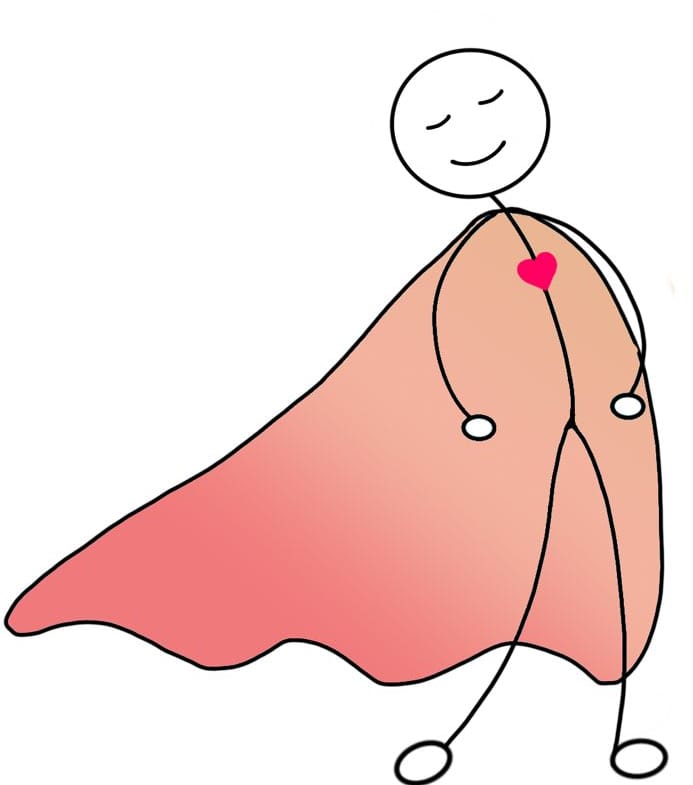Red Flags

Recognising Red Flags
The meaning of a red flag, is our internal compass alerting us when something isn't right. It's our body's recognition, warning us that danger is imminent. Growing up, I encountered my fair share of red flags. Yet, as a child, what could I do? I could recognise them, but realistically, as an adult, familiarity often drew me towards them, like a moth to a flame. I became the keeper of red flags, wondering why I repeatedly attracted them and why I kept ignoring them. Perhaps because I am British? Maybe I was being too polite and didn't want to cause a fuss or have a confrontation. Maybe I didn't think I deserved better? Maybe I thought this was normal? Strange, isn't it? It's our own lives and we want what's best, yet we constantly block the path for goodness to come as it's full of danger. As a result you become an unaware red flag yourself. I mean who wants to hang around with someone who is always choosing the wrong path?
Understanding Personal Boundaries
Well in dating, red flags can come in all shapes and sizes and vary on a spectrum depending on you. There are the obvious ones you should never ignore but sometimes do: Dark and secretive pasts, criminal records, burner phones, aggressive behaviour, substance abuse, you can never get hold of them, etc. But what about the ones we don't always think about? I've always said, you shouldn't date someone unless you know yourself truly. What are your likes? What is your communication style? What are your boundaries? Do you have any, or not? What are your expectations and what is your story and why? These are an important baseline, so when something crops up, and it feels uncomfortable, you can understand why. It's also important to note, sometimes flags can be misidentified if a past issue clouds your judgement, so try and work through any issues you have before you date anyone. So you can give you and the person you're dating a fair chance. Equally important, is to understand why you may be overlooking an obvious red flag and what that says about you.
Factors Influencing Perception of Red Flags
It brings me to what your drivers could be in a relationship? These could influence how you perceive a red flag. You could be with someone who treats you like crap but has lots of money and therefore you ignore the mistreatment. It can become a toxic trait as people's worth is tied in to how much money they have. Now, picture someone who craves constant attention and validation. They might overlook red flags signalling emotional unavailability or superficial connections. They might mistake a partner's constant presence for genuine interest, failing to see that it stems from the partner's own insecurities or lack of fulfilment elsewhere. This could trap them in relationships lacking depth or genuine connection. Worse still, it could isolate you from others, as you are constantly being needed by them. There are other red flags that become apparent over time. These include overly controlling behaviour, lack of accountability, being disrespectful, inconsistent communication, violating boundaries, gaslighting and manipulation. If any of these happen to you, regardless of the severity, it's important to reach out to someone to talk it through and report it where necessary.
Navigating Dating Standards
There's a misconception that red flags equate to having high standards. Standards are important, but it's unfair to expect them from others unless you uphold them yourself. I.e. Many people want someone with money but come to a relationship with lack thereof. How is it fair to expect someone to pay all the time and you don't contribute equally? Surely it's only a red flag if someone is financially abusing you, rather than simply suggesting a cheaper date option. How many nice people get overlooked because they aren't quite where they need to be financially? Maybe they have been through a lot and £ is a goal for later which they intend to achieve. Yet someone has dismissed them solely on income. Maybe they have other values that they believe are more important than showing off cash or even earning lots.
There is often confusion surrounding the word 'Nice'. After all, have you heard of the saying, 'Nice guys finish last'? What does that mean? For some people, being nice is a bad trait, as they fear this nice person can be easily walked over and that isn't attractive to them. Let's not forget, the world would be a better place if we were nicer and therefore, being nice is not necessarily a red flag. That person could genuinely have confidence, be assertive and have desired dominant traits but they value niceness first and foremost. Ultimately, being a "nice guy" or displaying kindness and respect in dating is not inherently negative, so try not to dismiss it.
High standards should be viewed as two people looking to find love, connection, respect and trust in the most healthy way based on what their values and beliefs are. Dating is the chance to get to know one another. It's also an opportunity to communicate when something doesn't feel right and yet, countless times, we oppress our true feelings in fear of rejection or being labelled incorrectly.
Picture this: You're a proud Feminist, passionate about equality and women's rights. Yet, in a relationship, your partner throws around the term "Feminaxi" whenever you assert yourself or express your opinions. At first, you might laugh it off or try to brush it aside, not wanting to rock the boat. But as time goes on, that word starts to sting, and you find yourself toning down your feminism to avoid conflict. You start second-guessing yourself, worrying that standing up for your beliefs might push your partner away. Before you know it, you're bending over backwards to accommodate their views. You end up sacrificing your own values and boundaries in the process. Moments like this, are when it's crucial to speak up, be heard and if needed, walk away.
Conclusion
I think it's important to understand the true meaning of a red flag and not let it cloud your judgement on a lifestyle you think you want and deserve. It should be based on a person's character. If these all come back good, based on who you are, then that's a green light. In our modern world, our views on red flags in relationships are heavily influenced by a mix of factors, both obvious and subtle. Think about it—social norms, media portrayals, and cultural backgrounds all play a role in shaping what we see as acceptable behaviour in romance. And let's not forget our own baggage—our past experiences, upbringing, and personal beliefs colour how we interpret certain actions or traits. Equally, when something feels wrong because it is violating, then speak up and trust yourself to know it's important to say.
In the world of online dating, with endless swiping and a seemingly infinite pool of potential matches, it's easy to judge someone based on surface-level flaws while missing out on deeper compatibility. To truly understand red flags, we've got to understand the societal, psychological, and technological forces shaping our romantic perceptions—it's a whole new dating game out there.
So, when you come across a red flag, don't rush past it. Take a moment to pause, reflect, and trust your instincts. Consider how it resonates with your values and boundaries. And if you're unsure, don't hesitate to reach out for advice or support. Remember, navigating red flags is part of the journey towards meaningful connections. Each red flag is a reminder to honour yourself and your needs as you continue on the path to finding love.





